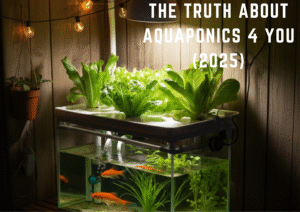
Unlock the Secrets of Kafue National Park: Zambia's Hidden Jewel
 Africa’s wilderness captivates the imagination with iconic landscapes and a dazzling array of wildlife. Yet, amidst the continent’s renowned safari destinations lies a hidden gem waiting to be discovered: Kafue National Park, Zambia’s untamed crown jewel. Often overshadowed by its more famous counterparts, Kafue offers a captivating adventure for those seeking an authentic safari experience brimming with natural wonders and a deep sense of exploration.
Africa’s wilderness captivates the imagination with iconic landscapes and a dazzling array of wildlife. Yet, amidst the continent’s renowned safari destinations lies a hidden gem waiting to be discovered: Kafue National Park, Zambia’s untamed crown jewel. Often overshadowed by its more famous counterparts, Kafue offers a captivating adventure for those seeking an authentic safari experience brimming with natural wonders and a deep sense of exploration.
A Tapestry of Untamed Beauty
Imagine a sprawling canvas painted with vibrant strokes of nature. Kafue National Park, encompassing a staggering 22,400 square kilometers (approximately the size of Wales!), reigns supreme as Zambia’s largest national park. Lush grasslands unfurl beneath endless skies, punctuated by the silhouettes of acacia trees offering shade to grazing herds. Dense woodlands whisper secrets in the rustle of leaves, while shimmering lagoons shimmer like scattered jewels. This diverse tapestry of ecosystems provides a sanctuary for an incredible spectrum of life.
A Haven for Wildlife Enthusiasts
Prepare to be awestruck by the sheer abundance of wildlife roaming free within Kafue’s borders. Witness iconic African animals like majestic elephants trumpeting their presence, powerful lions lounging in the golden light, and sleek cheetahs blurring across the plains in a burst of speed. But Kafue’s magic extends far beyond the big cats. Keep your eyes peeled for the shy sable antelope with its distinctive, spiraling horns, the graceful blue duiker flitting through the undergrowth, and the impressive puku with its reddish-brown coat.
A Symphony of Birdlife
For birdwatchers, Kafue becomes a symphony of sound and color. Over 500 avian species call this park home, each playing its part in the grand orchestra of nature. Soar with majestic fish eagles as they survey the waterways, marvel at the vibrant plumage of lilac-breasted rollers, and listen to the melodic calls of honeyguides as they lead you, hopefully, to a hidden beehive feast.
Beyond the Land: Unveiling the Kafue River
The lifeblood of the park, the Kafue River snakes its way gracefully through the landscape, nurturing diverse ecosystems along its path. Embark on a thrilling canoe safari, gliding silently along the water’s edge. This unique perspective offers an intimate glimpse into the lives of riverine creatures. Watch pods of hippos wallowing in the shallows, their snorts echoing across the water. Spot crocodiles basking on sun-drenched sandbanks, their reptilian forms a stark contrast to the vibrant blue dragonflies flitting amongst the reeds. Keen anglers can cast a line and test their skills against the mighty tigerfish, a local legend known for its ferocious fighting spirit.
Unveiling the Night: A Different Kind of Safari
As the sun dips below the horizon, Kafue transforms into a theatre of nocturnal activity. Embark on an unforgettable night safari, venturing into the realm of shadows with experienced guides. Powerful spotlights pierce the darkness, illuminating a world unseen during the day. Witness the silent stalk of a lioness hunting for prey, the mesmerizing dance of fireflies painting the grasslands with flickering light, and the haunting calls of hyenas echoing through the night.
Beyond the Wildlife: A Glimpse into Zambia’s Rich History
Kafue National Park holds secrets beyond the captivating wildlife. Delve into the rich cultural heritage of the region by exploring ancient bushman paintings adorning cave walls. These faded yet evocative depictions offer a glimpse into the lives of past inhabitants and their relationship with the land. Several lodges within the park organize visits to nearby villages, providing a rare opportunity to interact with the local people, learn about their traditional way of life, and gain a deeper appreciation for their deep connection to this extraordinary environment.
Planning Your Kafue Adventure: Essential Tips
The Ideal Time to Visit: The dry season, spanning April to October, offers excellent game viewing as animals congregate around water sources, making them easier to spot. However, Kafue’s beauty can be appreciated year-round. The lush green landscapes of the rainy season (November to March) offer a unique perspective, and birding enthusiasts may find this period particularly rewarding.
Accommodation Options: Catering to diverse preferences, Kafue National Park offers a range of accommodation options. Luxurious lodges with private balconies overlooking watering holes allow you to witness nature’s grand spectacle in style. For a more rustic experience, opt for comfortable campsites nestled amidst the wilderness, where the sounds of the African night lull you to sleep.
Safety First: Kafue National Park prioritizes the safety of its visitors. Reputable tour operators ensure your well-being throughout your safari. Always follow your guide’s instructions, maintain a safe distance from wild animals, and respect the park’s regulations to ensure a smooth and enjoyable experience.
Essential Packing List:
- Clothing: Pack for the season you’ll be visiting. During the dry season, khaki or neutral-colored clothing is ideal for camouflaging yourself in the bush. Opt for long, lightweight pants and shirts with long sleeves to protect yourself from the sun, mosquitoes, and potential brush scratches. Evenings can get chilly, so pack a light jacket or fleece for layering. Don’t forget a wide-brimmed hat and sunglasses for sun protection.
- Footwear: Comfortable walking shoes or hiking boots with good ankle support are essential for exploring uneven terrain and navigating dusty paths. Consider packing a pair of sandals for relaxing at camp during the day.
- Binoculars: A good pair of binoculars (preferably 8×42 or 10×42 magnification) will be your key to unlocking the details of the wildlife you encounter. Look for binoculars with good light-gathering capacity for early morning and evening game drives.
- Camera: Capture the magic of your Kafue adventure with a reliable camera. Consider lenses appropriate for both wide-angle landscape shots and telephoto close-ups of wildlife. Pack extra batteries and memory cards, as capturing the sheer abundance of wildlife sightings can quickly deplete your storage.
- Sunscreen and Insect Repellent: Protecting yourself from the harsh African sun and pesky mosquitoes is crucial. Pack a high-SPF sunscreen (at least SPF 30) and a broad-spectrum insect repellent containing DEET for optimal protection.
- First-Aid Kit: Pack a basic first-aid kit containing essential supplies like bandages, antiseptic wipes, pain relievers, and any medications you may require.
- Travel Adaptor: Ensure you have a travel adaptor compatible with Zambian power outlets to keep your camera, phone, and other electronic devices charged.
- Reusable Water Bottle: Staying hydrated is vital, especially during the hot season. Pack a reusable water bottle to minimize plastic waste and ensure a steady supply of clean drinking water.
Beyond the Essentials:
- Guidebooks and Field Guides: Enhance your safari experience by packing a comprehensive guidebook on Kafue National Park and a wildlife field guide. These resources can help you identify the animals you encounter and provide fascinating insights into their behavior and habitats.
- Journal and Pen: Capture your thoughts, observations, and unforgettable moments throughout your journey. A journal becomes a cherished keepsake long after your trip has ended.
- Headlamp: A headlamp is a convenient source of light for navigating around camp after dark, leaving your hands free for other tasks.
- Binoculars for Birdwatching: If you’re a dedicated birder, consider packing a second pair of binoculars specifically for birdwatching. Lightweight binoculars with good magnification (8×25 or 10×25) are ideal for spotting feathered friends flitting through the foliage.
Ethical Considerations:
- Respect the Wildlife: Remember, you are a guest in the animals’ home. Maintain a safe distance, avoid loud noises, and never attempt to feed or interact with wild animals.
- Minimize Your Impact: Tread lightly on the environment. Dispose of waste responsibly, avoid disturbing wildlife habitats, and be mindful of your water usage.
- Support Local Communities: Opt for tours operated by responsible companies that work with and empower local communities. Consider purchasing souvenirs from local artisans, supporting their livelihoods and preserving cultural traditions.
By following these tips and considerations, you can ensure a safe, enjoyable, and enriching safari experience in Kafue National Park. Prepare to be captivated by the park’s breathtaking beauty, the incredible diversity of wildlife, and the chance to connect with a truly unique and unforgettable environment.
Frequently Asked Questions (FAQs) about Kafue National Park:
General:
- Where is Kafue National Park located?
Kafue National Park lies in southern Zambia, approximately 240 kilometers south of Lusaka, the country’s capital.
- How do I get to Kafue National Park?
Several options exist depending on your budget and preferences. You can fly into Lusaka and then arrange a transfer to the park by road (approximately a 3-4 hour drive) or chartered light aircraft (around a 45-minute flight). Some lodges offer fly-in packages that include both flights and accommodation.
- What currency is used in Zambia?
The official currency of Zambia is the Zambian Kwacha (ZMW). Most lodges accept US Dollars and Euros for convenience, but exchanging some currency for local purchases is recommended.
- What languages are spoken in Zambia?
English is the official language of Zambia. However, numerous local languages are also spoken, with Bemba being the most common.
Visas and Permits:
- Do I need a visa to visit Zambia?
Visa requirements vary depending on your nationality. Check with the Zambian embassy or consulate in your home country for the latest information. Most visitors will require a visa, which can often be obtained upon arrival at the airport.
- Do I need any special permits to enter Kafue National Park?
Yes, all visitors require a park entrance fee, which can be paid upon arrival at the park gates. Some specific activities, like night drives, may require additional permits, so confirm with your chosen lodge or tour operator beforehand.
Health and Safety:
- What vaccinations do I need before traveling to Zambia?
It’s crucial to consult with your doctor or a travel clinic well in advance of your trip to ensure you are up-to-date on all recommended vaccinations. Common recommendations include Hepatitis A and B, rabies, and typhoid fever. Additionally, consider prophylaxis for malaria, a mosquito-borne disease present in Zambia.
- What is the medical situation like in Zambia?
Medical facilities in Zambia, particularly outside major cities, are limited. Pack a comprehensive first-aid kit and consider travel insurance with medical evacuation coverage in case of emergencies.
- What should I know about mosquitos?
Mosquitoes are prevalent in Zambia, particularly during the rainy season. Minimize mosquito bites by wearing long sleeves and pants during dusk and dawn, using insect repellent with DEET, and sleeping under a mosquito net.
Activities:
- What types of safaris are offered in Kafue National Park?
Kafue offers a variety of safari experiences to cater to different preferences. Explore the park on classic 4×4 game drives, embark on thrilling night safaris to witness nocturnal creatures, or take a canoe safari along the Kafue River for a unique perspective. Some lodges also offer walking safaris, allowing you to get closer to nature on foot, accompanied by an experienced guide.
- Is fishing permitted in Kafue National Park?
Fishing is allowed in designated areas of the park with a valid fishing permit. The mighty tigerfish is a popular catch, but be aware of regulations regarding size and catch limits.
- Can I go birdwatching in Kafue National Park?
Absolutely! With over 500 recorded bird species, Kafue is a paradise for birdwatchers. Bring your binoculars and a field guide to identify the incredible diversity of feathered friends you’ll encounter.
Additional Information:
- What is the best time to visit Kafue National Park?
The dry season (April to October) offers excellent game viewing as animals congregate around water sources. However, Kafue’s beauty can be appreciated year-round. The rainy season offers lush landscapes and attracts birdwatchers.
- What are the cultural experiences available in Kafue National Park?
Several lodges organize visits to nearby villages, allowing you to interact with the local people, learn about their way of life, and gain a deeper appreciation for their connection to the land. You can also explore ancient bushman paintings, remnants of a bygone era.
Table of Contents
SEARCH HERE
CATEGORIES
RECENT POSTS



Advanced Mitochondrial Formula 2025: Can It Truly Recharge Your Energy Levels?

The Truth About Aquaponics 4 You (2025): Does It Actually Work?




Hepato Burn Supplement Review: What You Need to Know Before Buying



“The Ultimate Guide to Papillex: Natural Immune Support for HPV Relief”



Slim Down Naturally: The Truth About Plant-Based Fat Burner That Actually Work

TedsWoodworking Review 2025: Is It Worth It for Your DIY Projects?




“Immunotherapy vs. Chemotherapy: A New Era in Cancer Treatment”





“The Ultimate Guide to Hyperpigmentation Laser Treatment in 2025”


Is UV 7 Good for Tanning? What You Need to Know Before You Glow


Planning a Trip from New Windsor to Grand Canyon? Here’s What to Know

